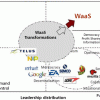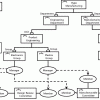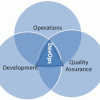Strategic advice to leverage new technologies
Technology is at the heart of nearly every enterprise, enabling new business models and strategies, and serving as the catalyst to industry convergence. Leveraging the right technology can improve business outcomes, providing intelligence and insights that help you make more informed and accurate decisions. From finding patterns in data through data science, to curating relevant insights with data analytics, to the predictive abilities and innumerable applications of AI, to solving challenging business problems with ML, NLP, and knowledge graphs, technology has brought decision-making to a more intelligent level. Keep pace with the technology trends, opportunities, applications, and real-world use cases that will move your organization closer to its transformation and business goals.
Recently Published
When we discuss software operations, we are often implicitly referring to the technical activities involved with day-to-day operations; that is, the parts of operations that are related to the infrastructure of a running system. This includes setting up and configuring hardware (whether virtual or physical) as well as the installation of operating systems and the base software needed for the final system.
2013 Predictions on Collaboration: Part I
This Executive Report proposes personalized dashboards for all managers in an enterprise as well as an active business model based on the Value Delivery Modeling Language (VDML). The report describes the VDML concepts and facilities that model the operation of the enterprise, the mechanisms for integrating the model with operational business systems, and, finally, the implications of the shared VDML model and modeling facilities to the future evolution of the enterprise.
An executive dashboard addresses the need for an executive to have timely information regarding exceptions in the operation of the enterprise. However, when the dashboard reveals an exception of concern, typically the executive must go elsewhere to determine the more specific cause of the exception and identify those responsible for taking action.
Manage IT As a SaaS Business
With the advent of cloud computing and SaaS, there is a new business model that can be adopted by the IT industry that forces a direct linkage between the cost of IT and the value that the customer receives. First, cloud computing introduces a new business model where organizations can manage IT as an independent entity outside of the customer's business or business unit.
Devops: Goals, Consequences, and Support
Devops has only been around for a brief few years, and it is already having a significant impact throughout the development community. While there are those who might view the integration of development and operations as a useful fad that serves a limited number of situations, evidence suggests that there are serious advantages to this approach
Jens Coldewey's Advisor "Why 'Agile vs. CMMI' Leads Down the Wrong Track" rightly argues that "Agile vs. CMMI" is not the right direction to go.











